“Science cannot solve the ultimate mystery of nature. And that is because, in the last analysis, we ourselves are part of nature and therefore part of the mystery that we are trying to solve.” — Max Planck
As a graduate student, I was often assigned to read the foundational work of pioneering ecologists such as the late W. Dwight Billings, who was still on the faculty of Duke University when I was enrolled there. The first few decades of ecological research generated an extensive body of descriptive papers that used the new and evolving ecosystem concept to explore the biomes of the world. Writing in 1933, Billings’ Ph.D. advisor Henry Oosting framed his work on a lake in the area around Minneapolis, USA by noting that “the present study, principally descriptive of the environment and vegetation…was begun as a necessary early step in the cultivation of a field of research as of yet almost untouched in Minnesota…” While quantitative methods were available to scientists at this time, qualitative observations still comprised an important component of the field. “Statistics,” Billings wrote in the journal Ecology in 1941, “cannot replace clear thinking, and masses of figures should not be allowed to obscure a clear picture of a problem.”
While ecology has learned a great deal through an increasingly strict approach to scientific positivism, these constraints are no longer needed, and indeed, no longer desirable in the advancement of urban ecology.
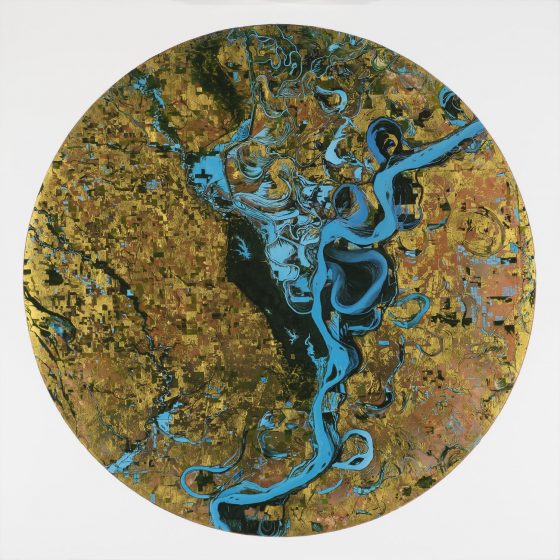
Ecology’s journey to distinguish itself from its “softer” roots is a bit of an ironic twist in the development of the discipline, at least as it pertains to urban ecology. The increasing recognition that human activities are becoming indistinguishable from “natural” processes has led increasingly to calls for a science of biocomplexity and coupled human-natural systems. One common methodological approach to understanding cities as complex ecosystems is to bring together the ecological sciences as they have been practiced as part of biology, with various sub-disciplines of the social sciences. While ecology is ostensibly the study of the relationships between organisms and their environment, in the last two decades many, if not most, ecologists have acknowledged that humans are not interchangeable with other organisms. As Pickett et al. (1997) summarized, “simply inserting humans in the organismal component of the ecosystem concept is correct, but hardly adequate to understand their role in ecosystems. This is because humans are social creatures with large manipulative capacities, whose primary means of adaptation is by learning…the second feature of humans that makes viewing them merely as biological agents inadequate to the task of understanding urban ecosystems is that humans are self aware and can learn individually, as groups, and as institutions.”
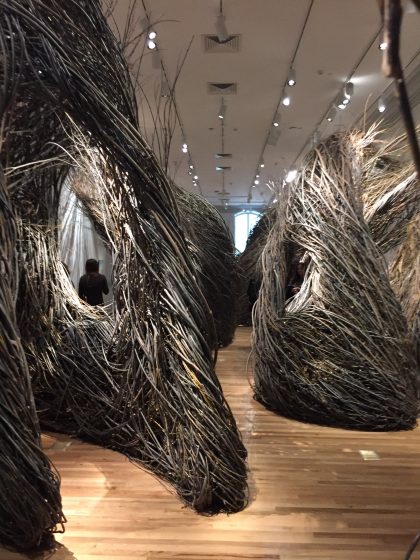
This argument certainly holds true today: humans are not sparrows, and there is more to studying human-dominated ecosystems than biological methods alone can reveal. And yet, more than two decades later, where do we stand in the development of socioecological science as a set of theories, a sub-discipline, or even as a set of methodologies? I have been deeply engaged in this field for many years, and I will confess that my answer is not far enough. Not enough to claim major advances in the scientific understanding of how cities work, and not nearly enough to help cities solve critical environmental and social problems.
I’m sure some readers engaged in this field will disagree. Perhaps some of you think that in fact, major breakthroughs have been made, or that socioecological research has greatly assisted contemporary cities with their most pressing problems, or perhaps simply that the field and its practitioners need more time to accomplish these things. But let me offer something else: the possibility that while ecology has learned a great deal through an increasingly strict approach to scientific positivism, these constraints are no longer needed, and indeed, no longer desirable in the advancement of urban ecology. This idea is somewhat implicit in the framework of “ecology for cities” that is becoming popular with urban ecologists in the United States. Ecology for cities advocates for an applied ecological science that will help inform urban design in ways that meet the needs of stakeholders and urban residents. Not surprisingly, this notion is somewhat contentious given the diversity of views on the varying and blurry lines between modern “objective” science, applied science, and advocacy that undermines public trust.
But there might be another way beyond the science vs. advocacy debate. Although numerous knowledge-to-action frameworks exist, ecology has yet to fully and explicitly interrogate the range of models of scientific objectivity, and their various challenges as implicit in modern urban ecology and it sibling disciplines: environmental science, sustainability science, and conservation biology. To varying degrees, these fields are built upon an implicit or explicit interrelationship between the observer and the object of the study: the city, society at large, and biodiversity. An interrelationship implies some degree of subjectivity and normative concern for the outcome: the practitioners of these disciplines have an interest in contributing to the livable city, the healthy environment, and the survival of non-human species. This conflict between normative ideals and post-Enlightenment scientific methodology has been plaguing the ecological and environmental sciences (and many sciences that have clear societal implications) for decades. But new generations of both scientists and philosophers, including feminist scholars, have challenged the assumptions of current methodologies. Evelyn Fox Keller, the mathematical biologist and feminist philosopher of science, pointed out that “scientific knowledge is made objective first by being disassociated from other modes of knowledge that are effectively tinged and hence tainted.” In the conventional view, the subjective mental experience of nature has little to offer science as a mode of knowledge. However, embedded in this experience are the reasons why we wished to engage in knowledge to action in the first place. In other words, we not permitted, in the traditional scientific method, to fully explore our personal connection to our object of study, how it came about, and how it may (or may not) be common to the human experience. As a result, cut off from ways of knowing in which nature affects us directly through personal experience, the broader relationships between people and nature remain elusive in ecology.
The human experience in the urban environment is, in fact, at the heart of what we need to understand if we’re to use scientific knowledge to build better cities. It’s no accident that human-environment interactions are among the most poorly understood aspects of urban ecology; many of the tools that can be used to access these experiences are deemed to be unusable in modern science, because they are too qualitative, subjective, or unverifiable by experimentation. This dilemma was a major impetus for bringing together the social and natural sciences to study urban complexity. However, the social sciences are also strongly influenced by positivist ideals and methods, going back to Comte. Perhaps less so than the natural sciences are today, but nevertheless, though much has been made of the conceptual and methodological differences between the social sciences and biology, they share many ideals and historical trends in development. Even social constructivism as a contrast to positivism is probably fairly accessible to most natural scientists, at least conceptually.
But the humanities offer additional, new possibilities of direct access to the human experience in urban nature, as well as a fresh understanding of what it means to construct nature in the urban environment, that are also needed in the expansion of ecology as an urban discipline.
The problem is that central to the humanities are assertions that contradict the very basis of modern science: that knowledge can be gained through subjective experience; that there is reality beyond what can be materially measured and physically verified; and that generalizable theory is not always the most insightful path to understanding nature. It is no trivial task to expand the concept of ecology to encompass these views, antithetical as they are to what not just scientists, but all of our modern society has to come to accept as a hierarchy of ways of knowing, with materialism at the top.
Taking materialism all the way to its logical end, the modern scientific method presumes that the human experience can be reduced to atoms, chemistry, and physical laws. Do ecologists really believe that this is true? I suspect that most do not; nevertheless, we’re on track to reduce humans and life in the general to the “ ‘universal laws of life’ that are…mathematizable so that biology could also be formulated as a predictive, quantitative science much like physics,” to quote Geoffrey West in Scale. To this, as a proposed endpoint for biology, I would answer that as a science that embraces uniqueness, context, variability, and interrelationships, ecology is, perhaps, the branch of the life sciences that is the least well-served by strict reductionism.
There are, in fact, biologically-based arguments for expanding our ways of knowing in ecology. In his dazzling book, The Master and His Emissary, psychiatrist Iain McGilchrist argues that modern cognitive science locates scientific materialism in only one part of the brain. While most of us have been presented with a simple view of the functioning of the left and right hemispheres of the brain (logic on the left, art on the right), the reality is, of course, more complicated. McGilchrist builds a case based on cognitive studies, neuroscience, evolutionary biology, and case studies in pathology (in which parts of the brain have been damaged) to present a more nuanced view. In his synthetic framework, the left hemisphere is responsible for evaluating information in relation to what is already known, placing objects and experiences in more abstract categories. It further contends with the impersonal, the literal, and the mechanical, but is not well-equipped to understand individuality, the otherness and the howness of things, their context, their interrelationships, and the experience of empathy. Rather, these aspects of cognition are the domain of the right hemisphere, which processes “relational aspects of new experience, emotion and the nuances of expression” as well as wholeness, connections, and uniqueness. McGilchrist then sweeps through all of western history, arguing that some periods have been dominated by left hemispheric thought, while others (the early Greek period, the Renaissance, and the Romantic period) have drawn more completely on all of our powers of cognition. According to this view, we are currently in a period where the left hemisphere is almost completely dominant over our culture and now constitutes virtually the entirety of the scientific method.
As an ecologist, I find this argument striking, since most of the asserted functions of the right hemisphere—context, interrelationships, the individuality of organisms, and the whole as more than the sum of its parts—are both central to ecology while still remaining the most uncertain and elusive aspects of our understanding of ecosystems and their functioning. Given that the post-Enlightenment scientific method has devalued many possible means of fully exploring these aspects of the natural and human-created world, it seems plausible that without a more radical expansion of the boundaries of ecological concepts and methods, we are highly constrained in our ability to understand, let alone successfully shape, the nature of cities.

Art-science collaborations in ecology abound—I’m not suggesting that they don’t exist—however, more often than not, scientists view these projects as a means of communicating scientific ideas and results to the public. What I’m calling for is a flow of information in the other direction, in which scientists are open to the arts and phenomenology as a means of gathering much needed knowledge about the intersection between people, cities, and other aspects of nature. At the very least, science and the humanities certainly need not be at odds where their goals intersect, as I believe they do with respect to urban nature. In a wide ranging essay in the Chronicle of Higher Education, Steven Pinker describes this relationship as nothing short of a war between the disciplines, with each side hurling accusations of racism and other atrocities against the other. I must disagree when Pinker implies that all critiques of the scientific method contribute to the cultural “war on science”. Pinker calls for a reconciliation between the humanities and science as I’m doing, but all the while calling practitioners of critical analysis of science “resisters to scientific thinking” for implying that not all phenomena can be quantified. His solution is for the humanities to move closer to science, while science need not question a single digit in the numerical depiction of nature by viewing the world through the lens of the humanities.
I am very much a practicing research scientist and not a humanist, but sometimes our traditional methods simply fall short of the questions that need to be answered. When it comes to the intersection between ecological processes, the built environment, and the experience of living in modern cities, this problem is both acute and urgent. If there is a chance that the arts, literature, philosophy, and other humanist disciplines have something to offer our understanding of what urban ecosystems are and can be, then I think we should explore that chance, and quickly. Given the pace of environmental and social change, we don’t, unfortunately, have another two decades to wait to see the results of urban ecological studies to come to fruition.
Diane Pataki
Salt Lake City

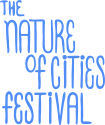
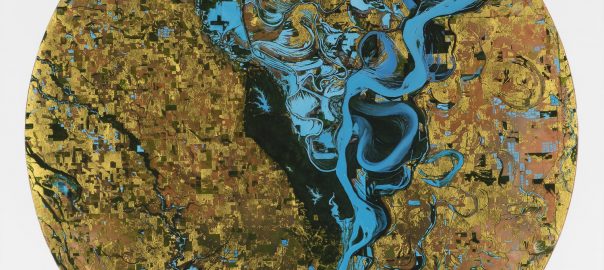
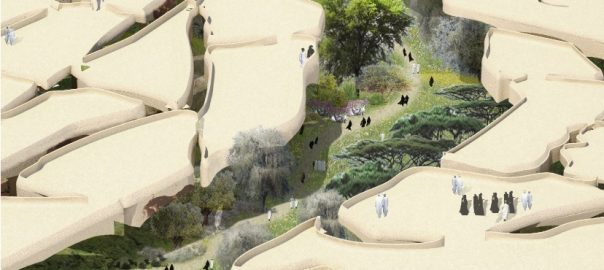
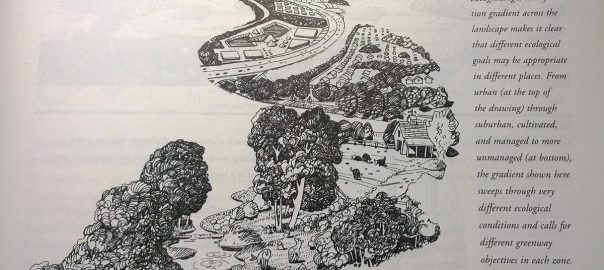
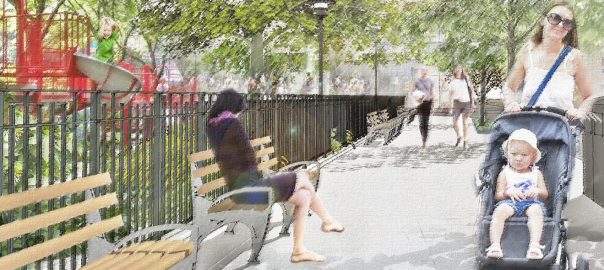
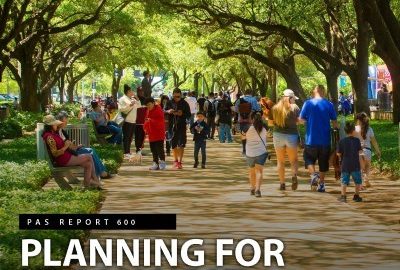
Leave a Reply